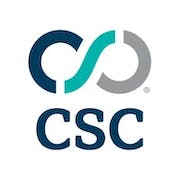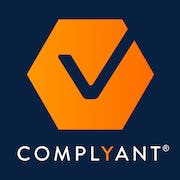Looking for the best sales tax software? Check out our comprehensive buyer's guide for everything you need to know before making a purchase! Features included, we've got you covered. Click now to find your perfect solution.
Welcome to the sales tax software buyer's guide! As a business owner, you know firsthand the challenges of managing sales taxes. The never-ending changes to tax regulations can be overwhelming, leading to costly mistakes and compliance issues. That is where sales tax software comes in - to simplify the entire process of calculating your sales taxes and keeping you in compliance with the latest regulations. With a wide range of options on the market, it can be difficult to choose the right one for your business. In this guide, we'll explore features, benefits, and drawbacks, helping you to make an informed decision and save time and money in the long run.
What is sales tax software?
This is a type of digital automated service that helps businesses determine and manage sales and use tax calculations. The software is designed to simplify tax compliance for companies that sell taxable goods and services in multiple states.
The common use cases of a sales tax system include:
- Tax rate calculations: It automates the calculation of sales and use taxes, using up-to-date tax rates and rules from various jurisdictions.
- Tax reporting and filing: The software generates tax reports and automates the filing of tax returns to ensure compliance with state and local tax regulations.
- Nexus determination: A sales tax tool can help businesses determine whether they have an obligation to collect sales tax in various states, based on factors such as physical presence, economic activity, or sales thresholds.
- Product taxability: This program can assist in determining which products and services are taxable, based on state and local tax laws.
- Integration with other systems: It can also be integrated with accounting, e-commerce, or ERP systems to streamline tax compliance across different business functions.
This tax technology is increasingly popular among small to medium-sized businesses, including retailers, ecommerce companies, manufacturers, and service providers, especially those operating across state lines. With tax laws becoming more complex, these businesses rely on such solutions to maintain compliance and prevent expensive penalties. In fact, at least 41% of companies turn to software to perform most of their sales tax management functions according to survey conducted by In90Group. With its automated features and up-to-date tax rates, it can save time and reduce the risk of errors, allowing businesses to focus on their core operations.
What are the benefits of buying a sales tax solution?
Here are some of the key benefits of utilizing a sales tax platform:
- Accuracy: This technology helps businesses avoid the risk of human errors, such as miscalculations, incorrect data entry, and interpretation mistakes. This feature ensures that the business remains compliant with all tax regulations, avoiding any potential fines or penalties.
- Time-saving: It automates many manual tasks related to sales tax calculations, filings, and payments. Consequently, it saves businesses a significant amount of time and effort that they can then allocate to other critical aspects of their operations. A research by PWC found that tax automation processes can account for as much as 60% of the time spent on tax compliance, while another 10% is spent on internal administration – leaving minimal time for preparation, review and risk management.
- Audit protection: With sales tax software, businesses can ensure they maintain accurate records and keep up with their sales tax obligations. Therefore, they are fully prepared for any audits by regulatory authorities or tax agencies.
- Cost-effective: A sales tax system can be cost-effective in the long run, considering tax preparers or professionals, time spent in-house, or even potential mistakes that could lead to serious penalties. This tax tool is a one-time investment with significant benefits down the line.
- Improved decision making: Accurate sales tax information can also be useful in making informed business decisions, such as identifying high-growth geographic regions and verifying vendor tax compliance, leading to better budgeting and forecasting for the business.
10 main features of sales tax software
A sales tax program is a must-have for any business looking to increase efficiency, profitability, and long-term success. Here are 10 of its common features that make managing sales tax easier for businesses:
- Automated tax rate determination based on the location of your business and customers.
- Calculation of sales tax for each transaction based on the tax rules and regulations of the state or country.
- Integration with various e-commerce platforms, ERPs, CRMs, and accounting systems to streamline the tax calculation process.
- Generation of sales tax reports and returns to comply with the tax laws and regulations.
- Management of sales tax exemption certificates and exemptions.
- Support for multi-jurisdiction sales tax requirements, including analyzing the taxability of goods and services across various states and countries.
- Real-time tax calculation and tracking of tax liabilities to avoid fines and penalties.
- Provision of compliance alerts for the latest tax rules and due dates to avoid missed deadlines.
- Assistance with audit trails and tax filings to resolve any discrepancies and conflicts.
- User-friendly and intuitive interface with customizable dashboards and reports to track your sales tax activities.
Things to consider when investing in a sales tax system
Sales tax can become a nightmare for businesses, especially with the constantly changing regulations and laws. Companies need to consider investing in a reliable software to avoid compliance issues, hefty fines, and loss of reputation. Here are some factors you company should consider when purchasing this comprehensive solution.
1. Accuracy and calculations:
The software should be able to accurately calculate sales tax in different jurisdictions, taking into account exemptions, tax holidays, and thresholds. It should also provide automated updates to ensure compliance with the latest regulatory changes.
2. Integration:
It should integrate seamlessly with existing accounting and e-commerce systems, reducing manual data entry and the risk of errors.
3. Support:
The software vendor should provide adequate support, training, and resources to ensure smooth implementation, adoption, and use of the app.
4. Scalability:
As the business grows, so does the volume of transactions and complexity of tax-related issues. The system should be able to scale up or down according to the business needs.
5. Security:
The tool should incorporate robust security features, encryption, and access controls to protect sensitive tax information from unauthorized access or cyber threats.
6. Flexibility:
Different businesses have different needs when it comes to sales tax compliance. The platform should offer flexible options such as multiple user accounts, customizable reports, and support for different tax jurisdictions and rules.
7. Cost:
The program cost should be reasonable and provide value for the money spent. Businesses should also consider the cost of not having a proper sales tax application, including penalties, interest, and loss of reputation.
Purchasing such a technology is a vital decision that can have significant consequences for a business. The solution should meet specific needs of the business so it is important to ensure that you fully understand the needs of your business before making a purchase, and choose a reliable and reputable software vendor.
Industry trends for sales tax software
The constant changes in tax laws, along with the complex sales tax requirements, can make it challenging for businesses to keep up with the ever-changing tax landscape. As we look to 2024 and beyond, sales tax software advancements offer exciting opportunities to transform the way businesses handle compliance in this area.
Trend #1
One of the most significant trends to emerge in recent years is the adoption of cloud-based sales tax software. This type of tool provides businesses with the flexibility to manage their sales tax obligations from any location and device. Additionally, it often offers a more affordable pricing model, making it accessible to businesses of all sizes.
Trend #2
Another critical trend is the integration of artificial intelligence (AI) capabilities into sales tax software. AI-powered solutions can automate tedious tasks such as data entry, identify potential compliance issues, and improve accuracy. This integration also helps simplify regulatory compliance and mitigate risks associated with auditing.
Trend #3
Sales tax software providers are increasingly focusing on providing a more user-friendly interface to make systems easy to use. This includes a more intuitive design, more efficient workflows, and personalized dashboards that provide critical data and insights effectively.
Trend #4
Lastly, the use of sales tax technology with a mobile app version is another critical trend. Mobile apps provide businesses with an easy and effortless way to manage their sales tax activities remotely. The future of this tool offers exciting opportunities to revolutionize the way businesses handle sales tax compliance.
Conclusion
In conclusion, for businesses navigating the complexities of sales tax across state lines, investing in sales tax software is not just advantageous but increasingly essential. By leveraging these tools, businesses can ensure compliance, minimize errors, and avoid costly penalties, ultimately streamlining their operations and safeguarding their financial health. With a wide range of options tailored to different business needs, finding the right sales tax app can empower businesses to focus on growth and innovation rather than tax-related worries.









